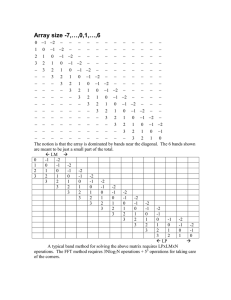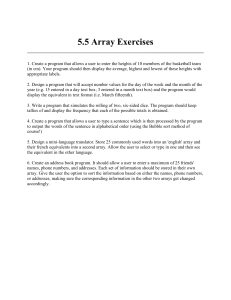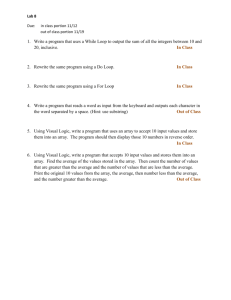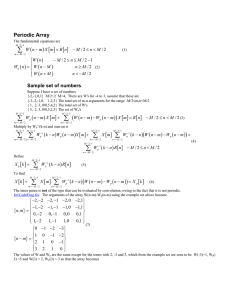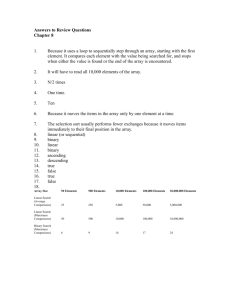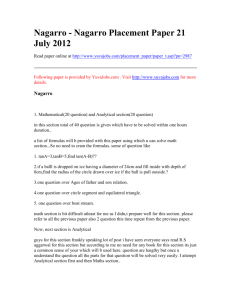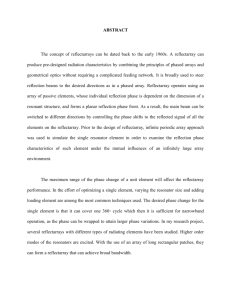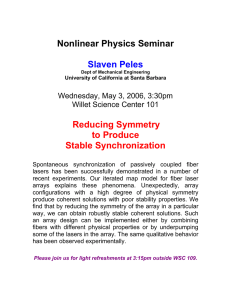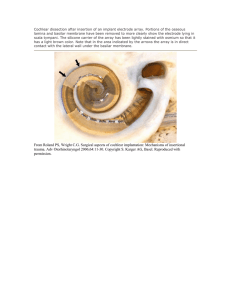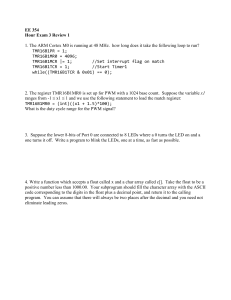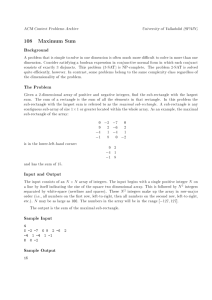Document 10617396
advertisement
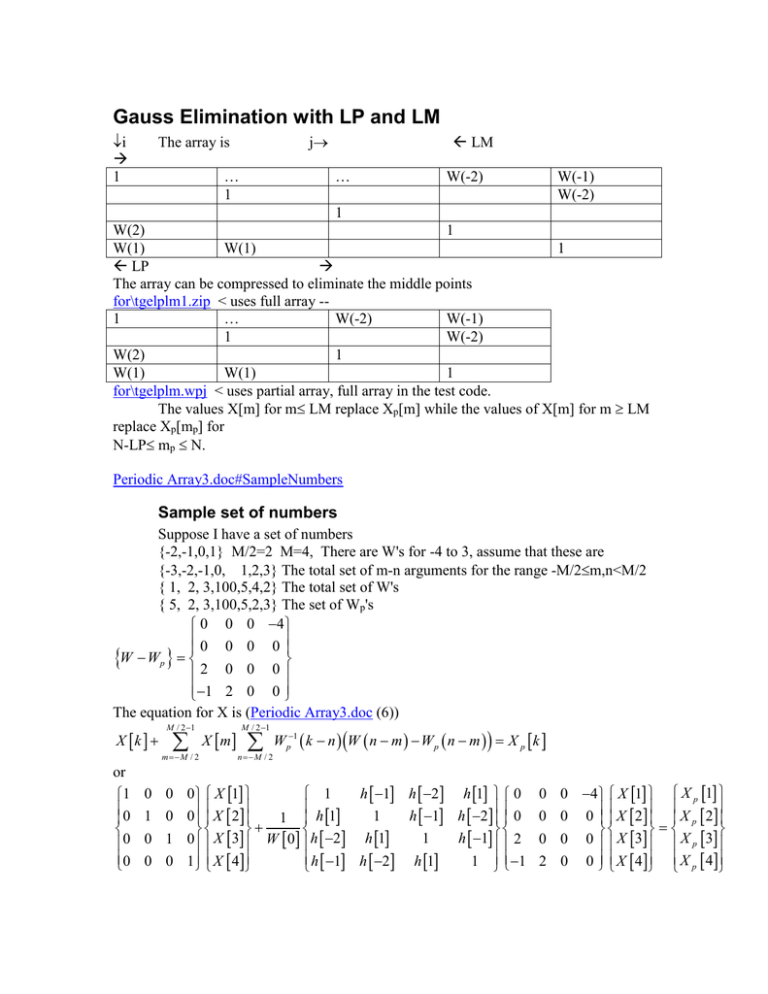
Gauss Elimination with LP and LM
i
1
The array is
LM
j
…
1
…
W(-2)
W(-1)
W(-2)
1
W(2)
1
W(1)
W(1)
1
LP
The array can be compressed to eliminate the middle points
for\tgelplm1.zip < uses full array -1
…
W(-2)
W(-1)
1
W(-2)
W(2)
1
W(1)
W(1)
1
for\tgelplm.wpj < uses partial array, full array in the test code.
The values X[m] for m LM replace Xp[m] while the values of X[m] for m LM
replace Xp[mp] for
N-LP mp N.
Periodic Array3.doc#SampleNumbers
Sample set of numbers
Suppose I have a set of numbers
{-2,-1,0,1} M/2=2 M=4, There are W's for -4 to 3, assume that these are
{-3,-2,-1,0, 1,2,3} The total set of m-n arguments for the range -M/2m,n<M/2
{ 1, 2, 3,100,5,4,2} The total set of W's
{ 5, 2, 3,100,5,2,3} The set of Wp's
0 0 0 4
0 0 0 0
W Wp 2 0 0 0
1 2 0 0
The equation for X is (Periodic Array3.doc (6))
X k
or
1
0
0
0
M / 2 1
m M / 2
X m
M / 2 1
n M / 2
W p1 k n W n m W p n m X p k
1
h 1 h 2 h 1 0
0 0 0 X 1
1
h 1 h 2 0
1 0 0 X 2
1 h 1
1
h 1 2
0 1 0 X 3 W 0 h 2 h 1
h 1 h 2 h 1
1 1
0 0 1 X 4
0 0 4 X 1 X p 1
0 0 0 X 2 X p 2
0 0 0 X 3 X p 3
2 0 0 X 4 X p 4
Multiplying the two 4 x 4 matrices
1
h 1 h 2 h 1 0
1
h 1 h 2 0
h 1
1
h 1 2
h 2 h 1
h 1 h 2 h 1
1 1
0 0 4 2h 2 h 1 2h 1
0 0 0 2h 1 h 2 2h 2
2h 1
0 0 0 2 h 1
2
2 0 0 2h 1 1
0 4h 1
0 4h 2
0 4h 1
0
4
Adding the diagonal matrix
2h 2 h 1 W 0
X 1 X p 1
2h 1
0
4
2h 1 h 2
2h 2 W 0
0
4h 1
1
X 2 X p 2
2 h 1
2h 1
W 0
4h 2
W 0
X 3 X p 3
2h 1 1
2
0
4h 1 W 0 X 4 X p 4
Writing out the 4 equations
2h 2 h 1
2h 1
4
1 X 1
X 2 0 X 3
X 4 X p 1
W
0
W
0
W
0
2h 2
2h 1 h 2
4h 1
X 1
1 X 2 0 X 3
X 4 X p 2
W 0
W 0
W 0
2 h 1
2h 1
4h 2
X 1
X 2 X 3
X 4 X p 3
W 0
W 0
W 0
2h 1 1
W 0
4h 1
2
X 2 0 X 3
1 X 4 X p 4
W 0
W 0
X 1
X[3] does not enter into the equations for X[1], X[2], and X[4]. These can be determined
from
2h 2 h 1 W 0
X 1 X p 1
2h 1
4
1
2h 1 h 2
2h 2 W 0
4h 1
X 2 X p 2
W 0
2h 1 1
2
4h 1 W 0 X 4 X p 4
Then the equation for X[3] is
X 3
X p 3
M / 2 1
n M / 2, n 3
X n Wp1 W Wp
n ,3
Wp1 W Wp
3,3
The large diagonal element is left out of the numerator and dominates the denominator.
There is, however, some change to all elements of X.
